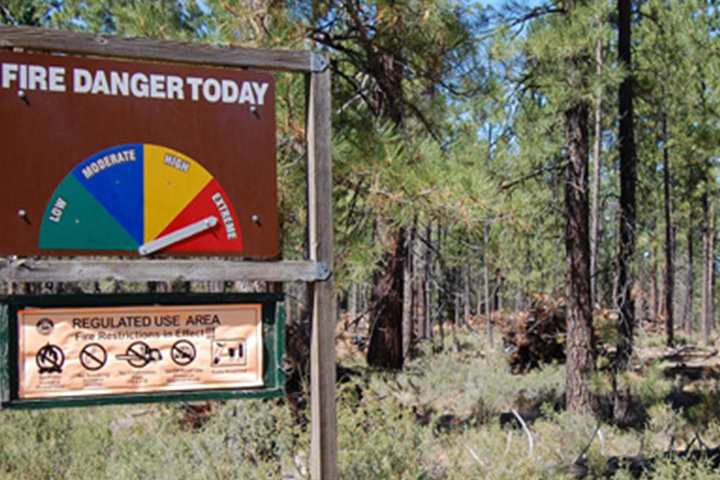Improving Climate Change Social Vulnerability Assessments: New Indicators of Adaptive Capacity
Improving Climate Change Social Vulnerability Assessments: New Indicators of Adaptive Capacity
Improving Climate Change Social Vulnerability Assessments: New Indicators of Adaptive Capacity
Program: Catalyst Grants
Program details » | All Catalyst Grants projects »

Photo credit: USFS
Project Team
Paige Fischer — U-M School for Environment and Sustainability (SEAS) (PI)
Wayne Baker —U-M Ross School of Business
John Kim —U.S. Forest Service
Matt Sehrsweeney — U-M SEAS
Project Summary
In the Pacific Northwest, where severe wildfires, drought, and decreased snowpack have become increasingly frequent in recent decades, there is an urgent need to assess regional vulnerability to climate change impacts. Researchers in this project set out to assist the U.S. Forest Service (USFS) and its Pacific Northwest Research Station in climate adaptation planning by advancing the understanding of communities’ “adaptive capacity”--their ability to adjust policies and mobilize resources to deal with change.
Through interviews with stakeholders from three communities identified as especially vulnerable to climate change impacts, the team uncovered several socio-political conditions that give rise to greater adaptive capacity at the local level including:
- Legal authority to utilize existing conservation-related law
- Ability to leverage political power through strong ties to state and federal politicians
- Support from state agencies and legislatures that control management permits and funding
These findings, along with strategies the USFS could use to enhance the adaptive capacity of communities in which they operate, were shared directly with the team’s agency partners.
Beyond advancing basic research on climate change vulnerability, this work has the potential to inform how the Forest Service assesses climate change vulnerability, carries out adaptation planning, and crafts effective vulnerability-related policy. It also lays the foundation for future UM-USFS collaborative research and idea-sharing across natural resource management networks within the Pacific Northwest, work that could help prepare for the worst effects of climate change.
For more details, read the final project report (PDF)
This project received a $10,000 Catalyst Grant in 2019.